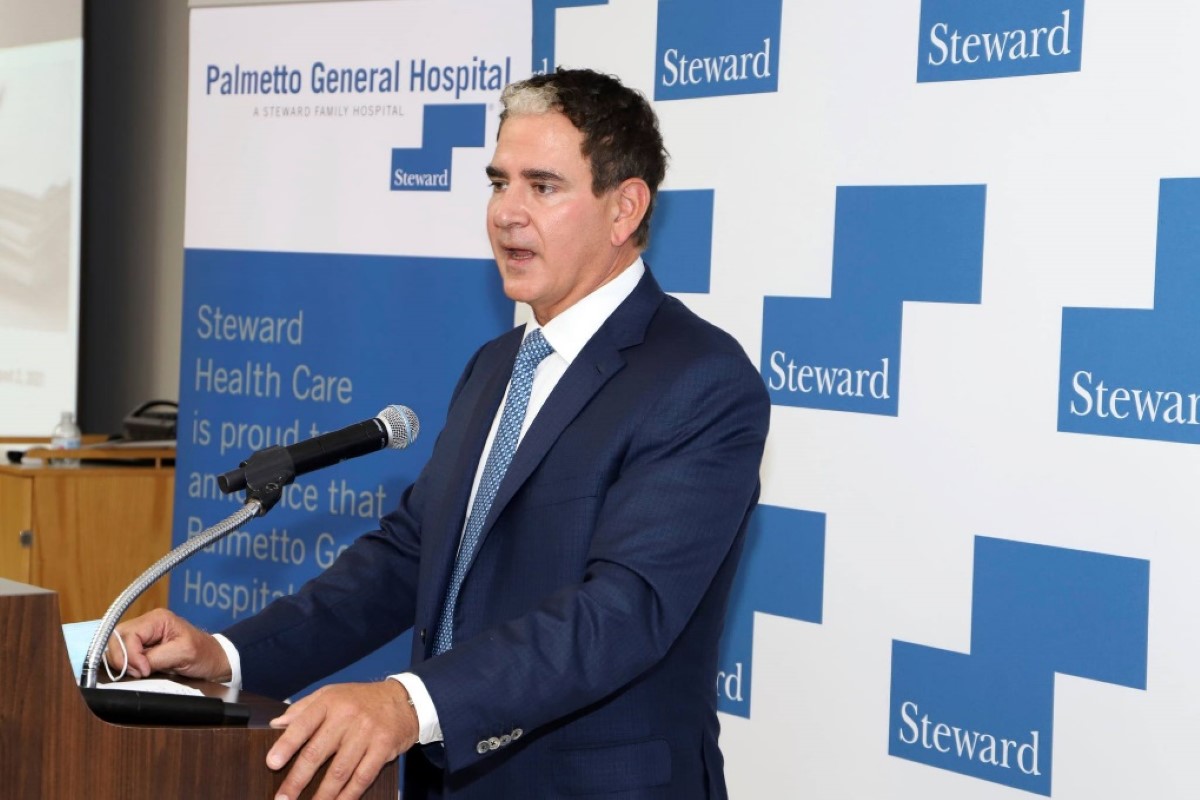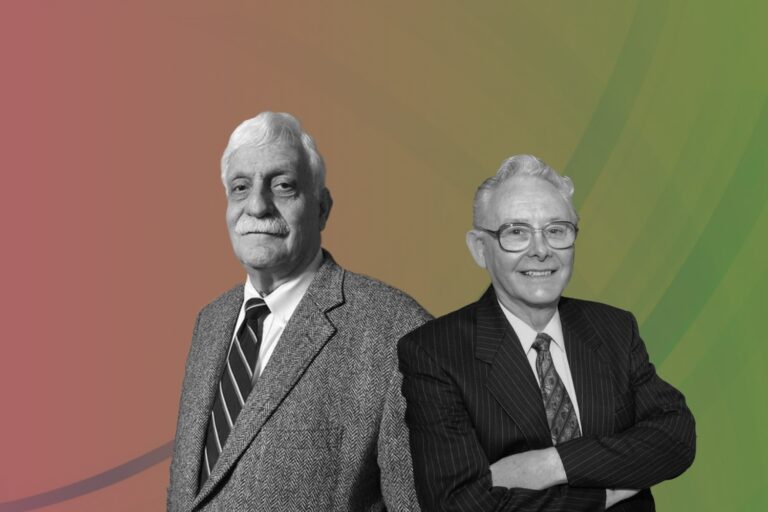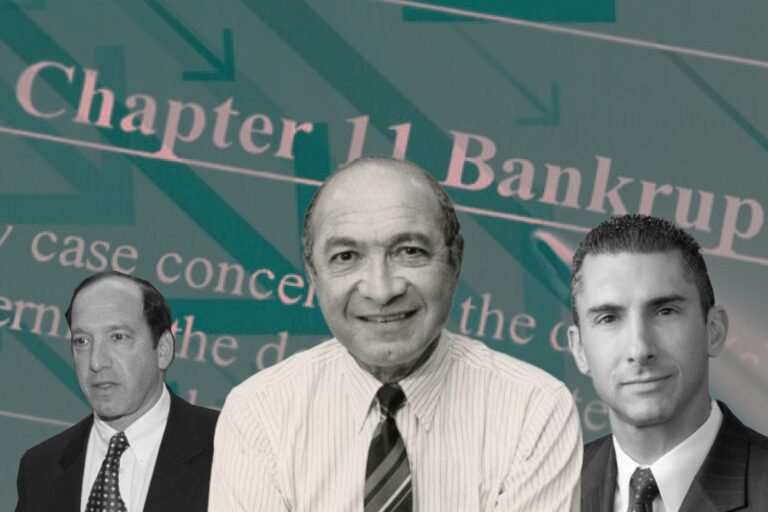Steward Health Care: How to Innovate under the New and Unique “Asset-Light” Model
Nearly a decade ago, Steward Health Care set out to build an entirely different kind of healthcare company from the ground up that unlocks access to affordable, high-quality, and economically sustainable care and wellness in ways never before imagined. For the time being, it is the largest private physician-led health care network caring for millions of people across America and beyond.
Since its inception, Steward has become an integrated and diversified care delivery system with over 5,000 physicians, multiple urgent care centers, 36 hospital campuses, and innovative insurance product offerings. Its network is made up of physicians who care for approximately 2.2 million patients annually and provides more than 12 million patient encounters per year, which are impressive numbers.
With a passionate focus on high-quality care, innovative services, and a strong mission, Steward is not only transforming health care in the cities and towns where it operates but is also building a new industry model for the rest of the country. Its transformative and fully integrated model represents a new beginning for America’s health care system as a national leader in delivering world-class healthcare under the value-based paradigm.
Secret Sauce behind an Innovative Model
In a complicated marketplace within the healthcare industry, Steward has moved far outside the mainstream. Steward is selling its nine hospital buildings to a real estate investment trust and leasing them back after six years of trying to turn around a string of mostly failing hospitals. This is the first time a hospital in New England has taken this route; nationally, real estate investment trusts own less than one percent of acute care hospitals.
Steward has perfected a unique business model that keeps patients healthy and holds costs down. As a physician-led system, the system uses a model called “asset-light”, where it leases its hospitals rather than own them. Under Steward’s system, doctors and specialists work together to offer preventive care, while working with patients and their families to manage health issues.
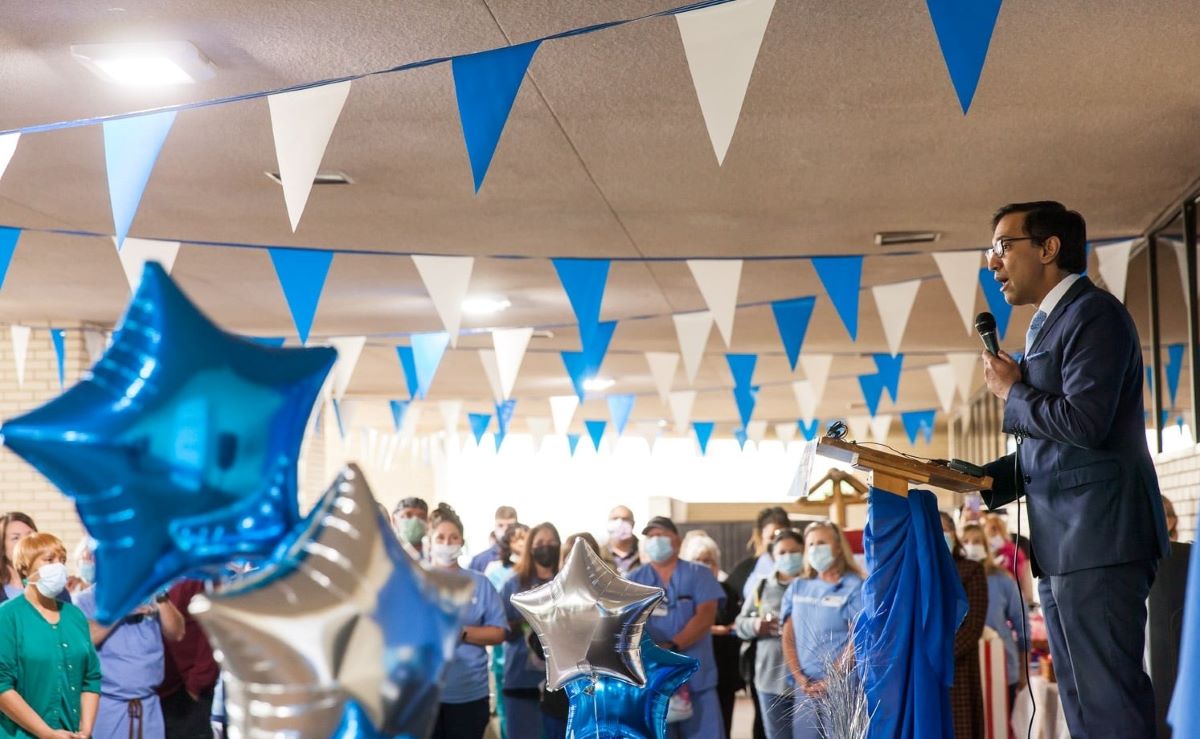
“Our physician-driven, accountable care model focused on keeping patients healthy is completely transforming the health care industry. It demonstrates how the industry can successfully shift toward a more cost-effective, local, and coordinated approach that puts patients first,” said Dr. Ralph De La Torre, Chairman & CEO at Steward Health Care.
Steward has figured out the recipe for providing high-quality healthcare at relatively low cost, a strategy that leads to profitable growth nationally. Intending to become a low-price leader in the provision of high-quality care, the system has also worked with payers to negotiate patient group-oriented budget pricing. At Steward, principal assets are not hospital wings and emergency rooms but a quality brand and a proven business model.
“We have 3,500 doctors treating three million patients a year. People know what we stand for and that we are an alternative to the old model of delivering healthcare. When we founded Steward, there was room, if not a requirement, for a new model of actually delivering healthcare. The old model of delivering healthcare with an academically-oriented hospital as the hub or focus, we think, is an antiquated model in terms of clinical delivery, in terms of economics, and in terms of patient convenience,” said Brian Carty, Chief Marketing Officer at Steward Health Care.
Steward prefers to focus on nonfinancial metrics when assessing its own performance. The system says it can thrive in an accountable care environment, where healthcare firms are not compensated for the specific services, they perform but for keeping patients healthy within a set budget. In doing so, it can deliver 80-90% of what gets delivered at academic medical centers, offering the same quality but 20% cheaper.
According to Mark Girard, Executive Vice President at Steward Health Care, the system has soon figured out the secret sauce of healthcare. Overseeing hundreds of thousands of patients in accountable care programs, the system receives lump-sum payments for the care it delivers and earns a profit or loss depending on its ability to live within that amount.
Steward is not a real estate company, so by shedding its hospitals, it is able to focus more on its core competencies. This is not about managing hospitals, it’s about using the hospitals to meet the population’s health needs and managing the entire population to achieve wellness rather than just treating sickness. The system is focused on delivering care at the best possible price and not intent on putting patients in its hospital beds.
Major hotel chains rarely own their facilities as they realized a long time ago that buildings are not the key to their success but the customer relationships. Therefore, they compete based on their brands, services, customer experience, loyalty programs, and market positioning. As healthcare becomes more consumer-oriented, health systems must develop equally strong brand loyalty and customer relationships just like what’s happening within the hotel world.
Having sold off many hospital facilities and medical office buildings, Steward became that “asset-light”. The system is banking on its ability to be good a manager of global budgets. As an innovator in the health care marketplace, Steward has created a model that is providing real value and would work well under any compensation scheme. This type of model is proven valuable, and also replicable in the foreseeable future of America’s healthcare.
Remarkable Lessons Offered by the Chairman and CEO
In an industry entangled with commentary, red tape, and fear of change, Dr. Ralph De La Torre has ambitiously forged to the forefront as the Founder and CEO of Steward Health Care with the attitude that little is impossible. In an interview, he discussed his management style, physician engagement, problems in American healthcare, and how he executes big ideas. From all that sharing, some important lessons and insights have been offered.
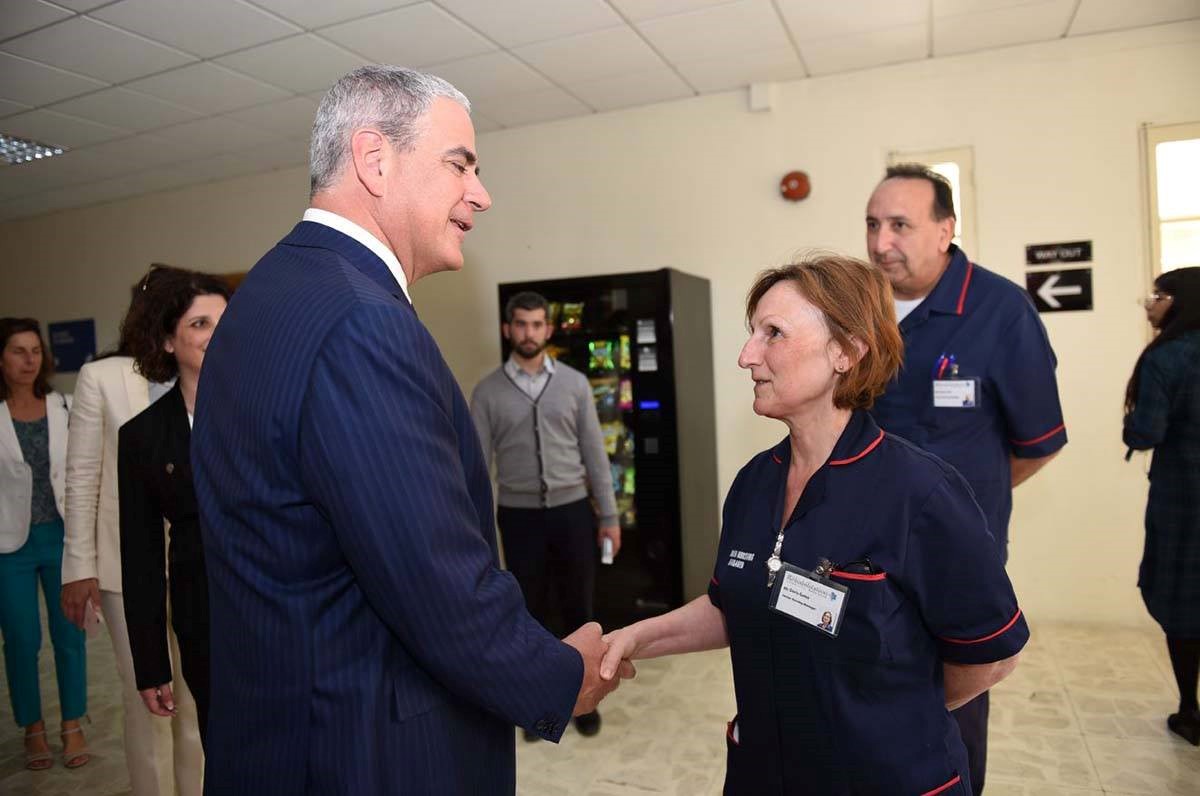
#1. Be Inquisitive
As he admitted, he is an inquisitive person who loves to tinker, explore, and think about innovative, out-of-the-box approaches. On a professional level, he takes a different approach than other healthpreneurs. He begins by forgetting everything that exists and constructing what he believes to be an ideal structure with an ideal process. Once the ideal is constructed, you simply connect the dots from the present to the future adding layers of details and contingencies.
#2. Embrace Changes
Over the years, one notion that Ralph De La Torre has found to be most destructive in the healthcare industry is the inability to cope with or embrace changes. In his opinion, healthcare is an industry that despises change. But everything changes, from technology changes, culture changes, to attitude changes. As an industry and as a profession, healthpreneurs together need to learn how to change with the times.
#3. Break Big Initiatives Down
According to him, breaking big initiatives down into manageable work is the largest obstacle facing healthcare executives. What healthpreneurs have to do is break big business plans up into smaller tasks. “You create a seven-year plan that is complex and far-reaching, and then you break it down into several components, and you break those components down into further components, and then you break those down into deliverables for a given year, and so on. Then you concentrate on the task immediately ahead of you. If everyone concentrates on their task, you eventually get to the designed endpoint,” he explained.
#4. Think as Physicians Do
Ralph De La Torre has a very clear determination that Steward is a healthcare company, not a hospital company nor an insurance company. In many ways, it’s mostly a physician company that happens to operate hospitals and some insurance components and so it’s naturally aligned with the way physicians view the healthcare world. Within Steward’s structure, many constructs exist for physician empowerment and caregiver empowerment. Physicians gravitate towards the system because it has been designed to accommodate them and think as they do.
#5. Stay True to Patients
At Steward, physicians are all honest, hard-working, and want the patient to have a successful outcome. When it comes to taking care of about a million patients or a hundred million patients, a lot of other agendas and objectives come into play, and it’s easy to lose some of these ideals. “I’ve found that to be a hard lesson because you can’t predict what people are going to do. As a corollary to that, I have been surprised that it is very easy for people to distort the truth and prey on fear in order to achieve an outcome. Those concepts have been very hard lessons for a physician,” Ralph De La Torre said.
An Inside Look at the Digital Transformation Journey

Having taken steps to embrace digitalization over the past couple of years, Steward Health Care is well underway in its digital transformation journey. With a belief that innovation is the core and a determination to lead the field as well as remain innovative in the healthcare sector, the system stays agile as it responds to the latest trends in the supply chain space.
“We’re on a digital path. We know we’ve got to get to one enterprise resource planning capability, and we’re in the process of undergoing that transformation now. What’s critically important from there is how you take that information and begin to use it, in order to get better consumption information at the point of care and understand what your inventory positions are. We’re also creating a mission control capability that will allow us to predict our ability to deliver care in advance,” affirmed Michael Prokopis, Vice President of Supply Chain at Steward Health Care.
In his opinion, the back orders are always a problem. “We have to ask ourselves how we make sure, with the highest level of prediction, we can deliver the things that we’re promising to our customers. It’s really about deciding how we can predict the back order by watching and monitoring. You have to ask yourself what you are going to do about it, and how you can do it in advance in order to counter the problem from happening,” he said.
Prokopis believes what really differentiates Steward Health Care from its rivals is value analysis. Besides a value analysis team just as other hospital organizations, the system also has a product category team serving as the inflection point to understand what’s happening in the facilities and generate lots of ideas that are evaluated and monitored for broad standardization.
The system is constantly pushing itself to see if there’s a way to improve, reimagine and rethink the way that it’s working and delivering care for its patients. Considering innovation a key pillar to its future growth and pivotal to success and operating with a customer-centric approach, the system has seen a dramatic increase from 10 to 38 hospitals, becomes more sustainable, and drives more value at the same time.
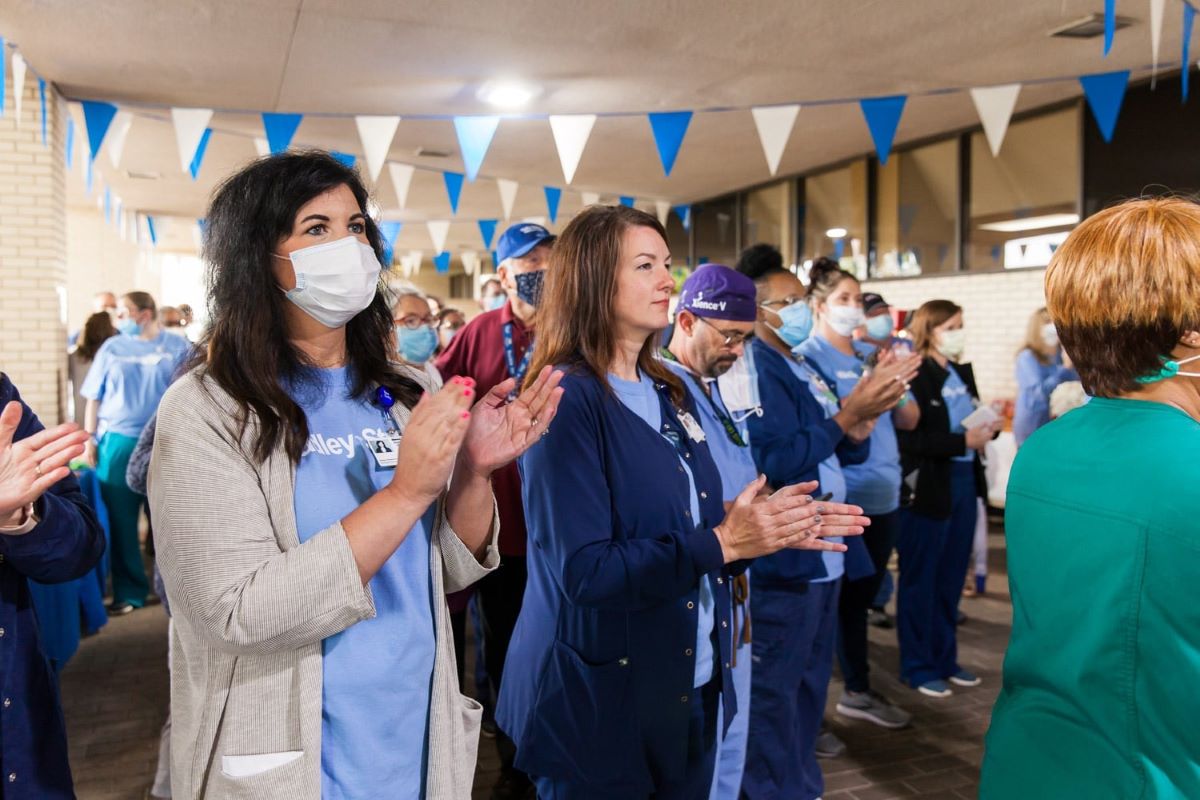
Every dollar the system saves in the supply chain is not a dollar that rolls to the bottom line but a dollar that it can reinvest into its care. There’s a long list of things to buy and do and renew to stay on the cutting edge. Prokopis always tells his team all the time that their fiduciary responsibility as a supply chain is that they’re a services organization. At the same time, he tells his boss that they don’t need to reinvent the supply chain, they just need to correctly implement.
Establishing and maintaining successful partnerships vital to all businesses’ success. As Prokopis stated, it’s important to pick strategic partners with whom you go through the process of demand planning up to five years in advance. To him, a partner is someone who would generate new ways of doing things to see the problem from different perspectives.
When it comes to what he looks for when seeking to formulate a successful strategic relationship, Prokopis said, “We’re always looking for strategic partners; we hope someone’s going to come to us and say: Here are some ideas that we haven’t implemented or maybe you haven’t contemplated, let’s see if we can figure out how to do this together. Those are the kinds of things that are extremely important to do.”
The Bottom Lines
At Steward, under Del La Torre’s leadership, everyone tends to see things differently, challenge the status quo and think about how they can be smarter and more effective in the way they manage their works and take care of their patients. With that innovative culture and model fostered from the very beginning, the system has got its proven success and has been a role model for many of today’s young systems to look at and learn from.

